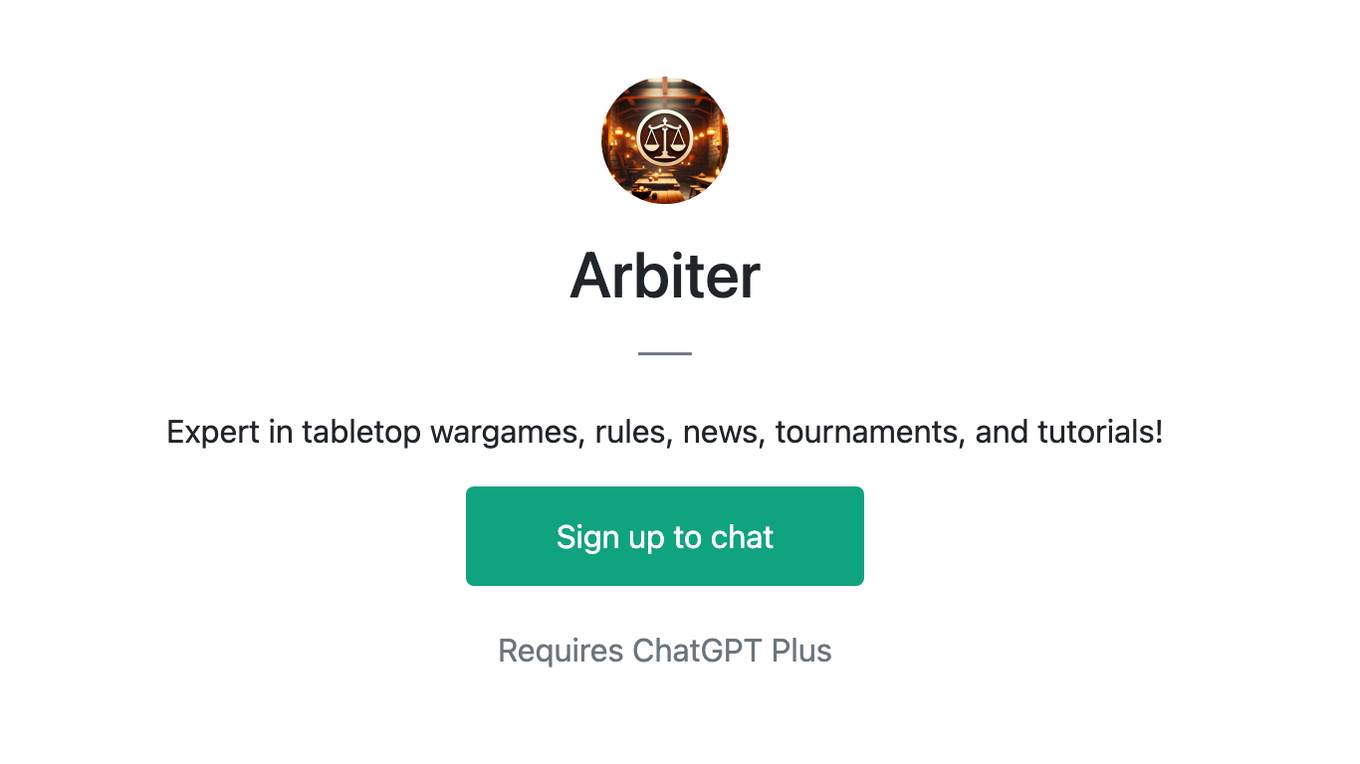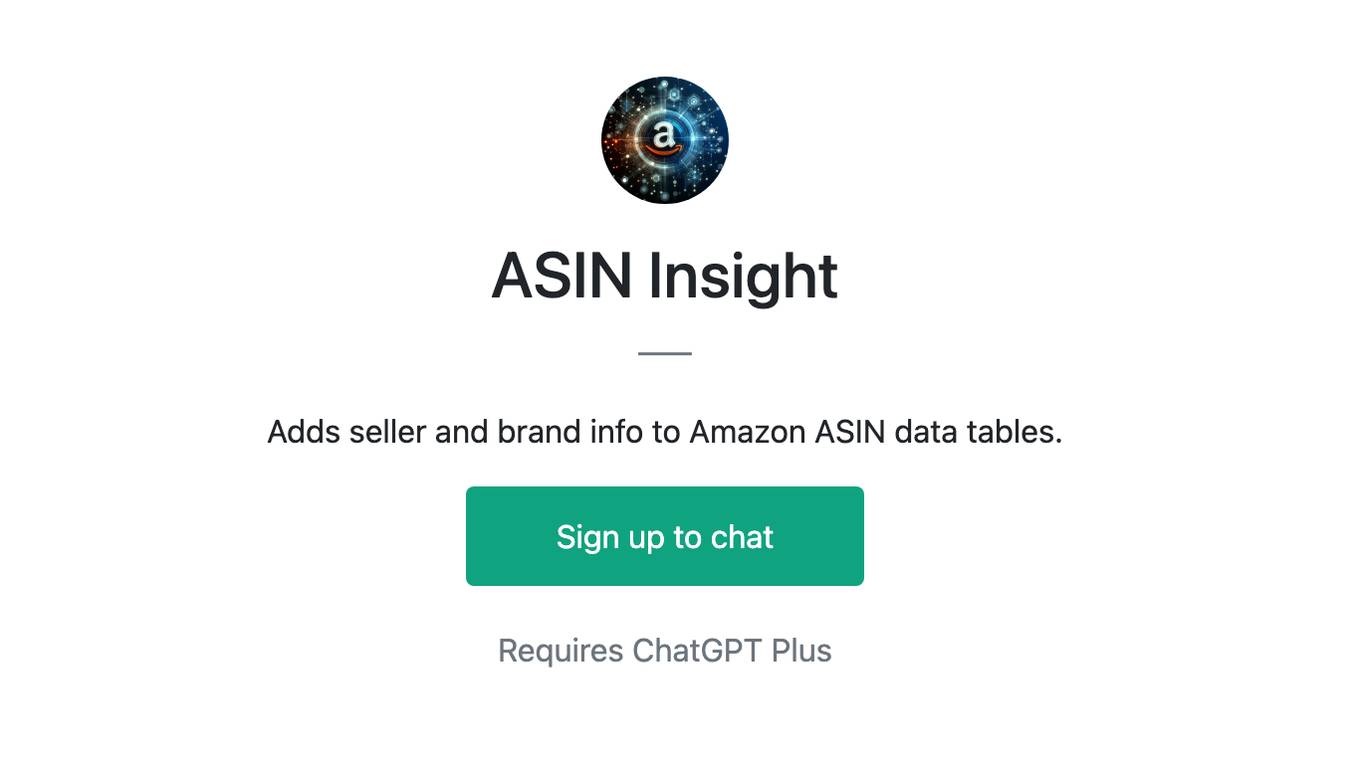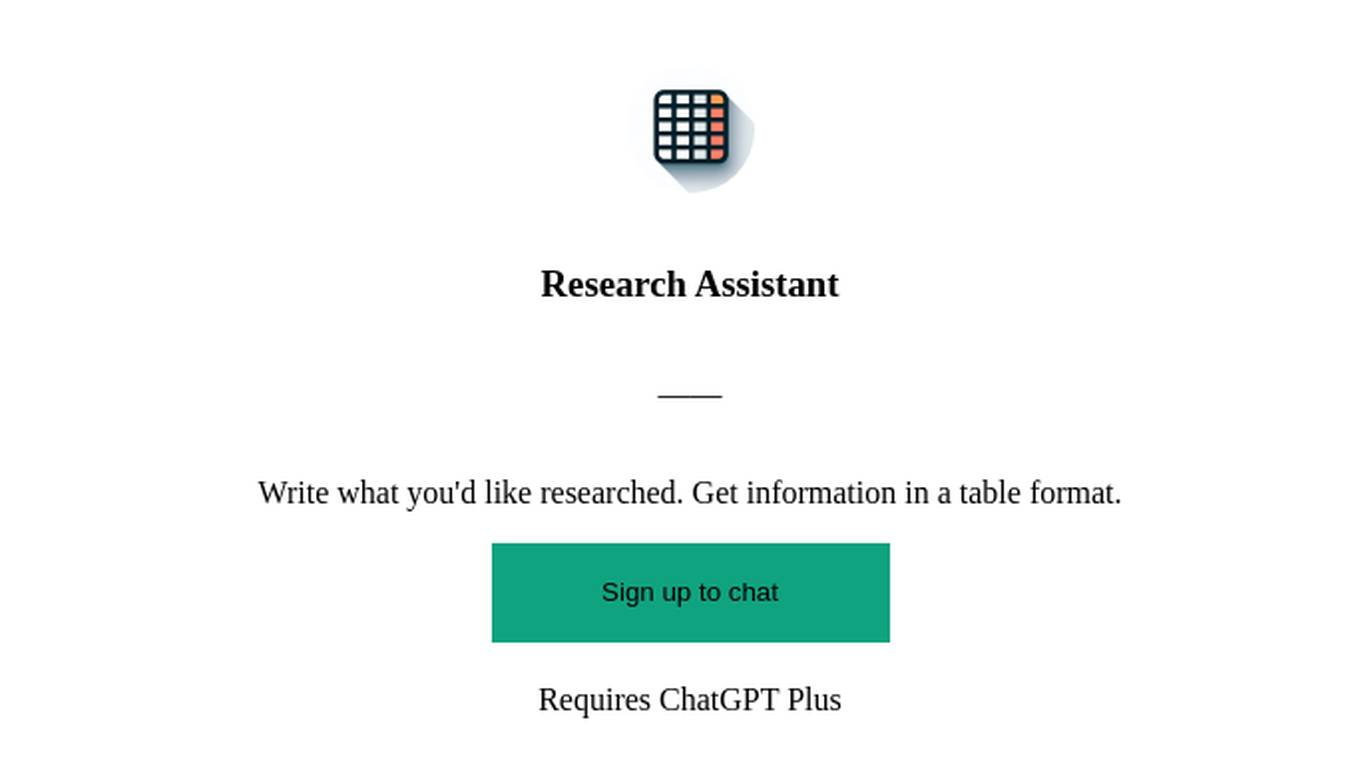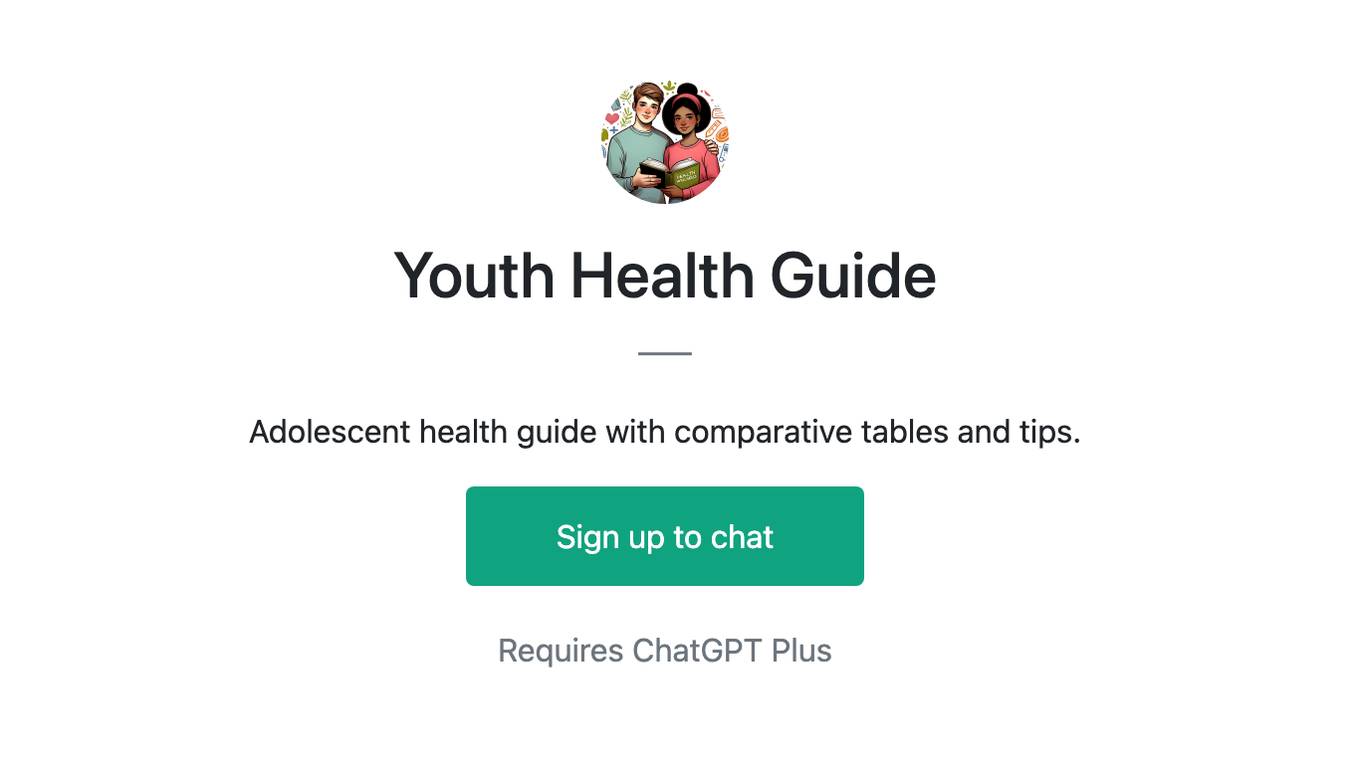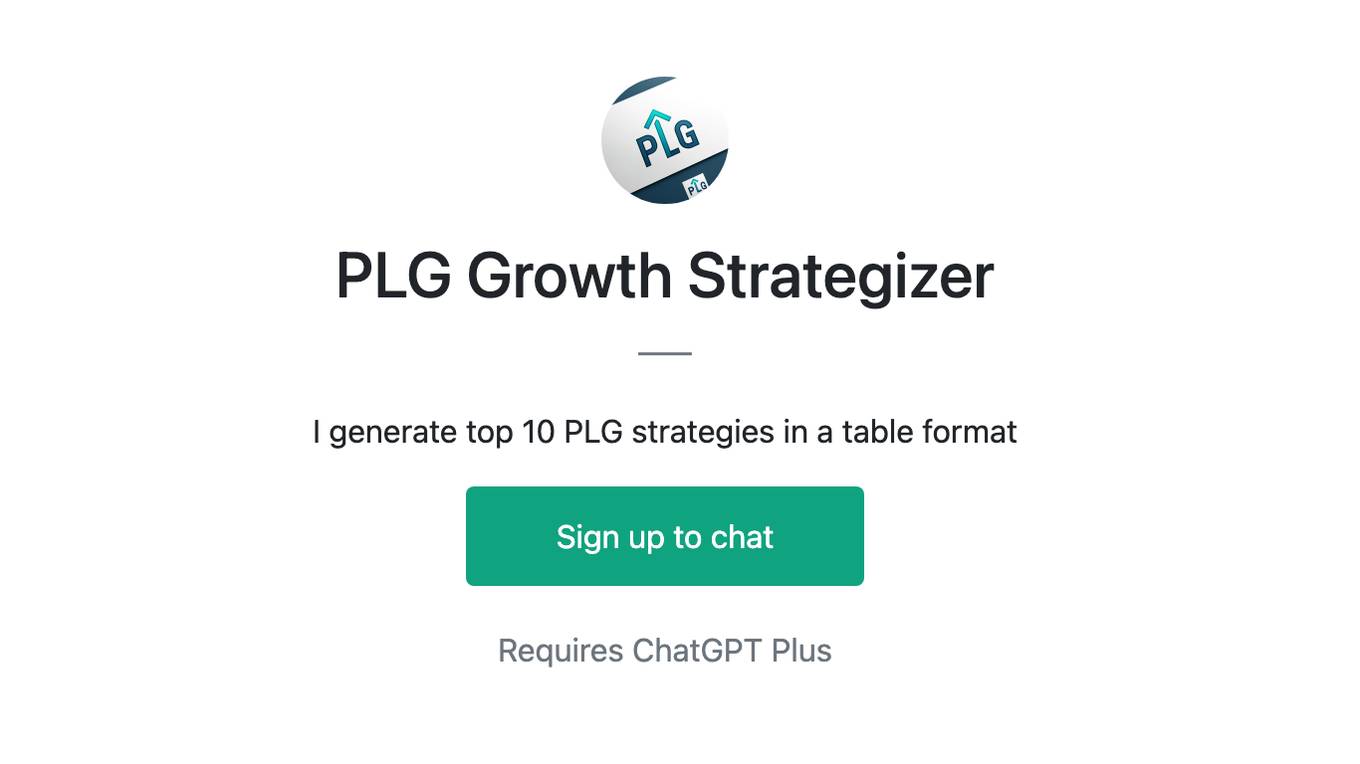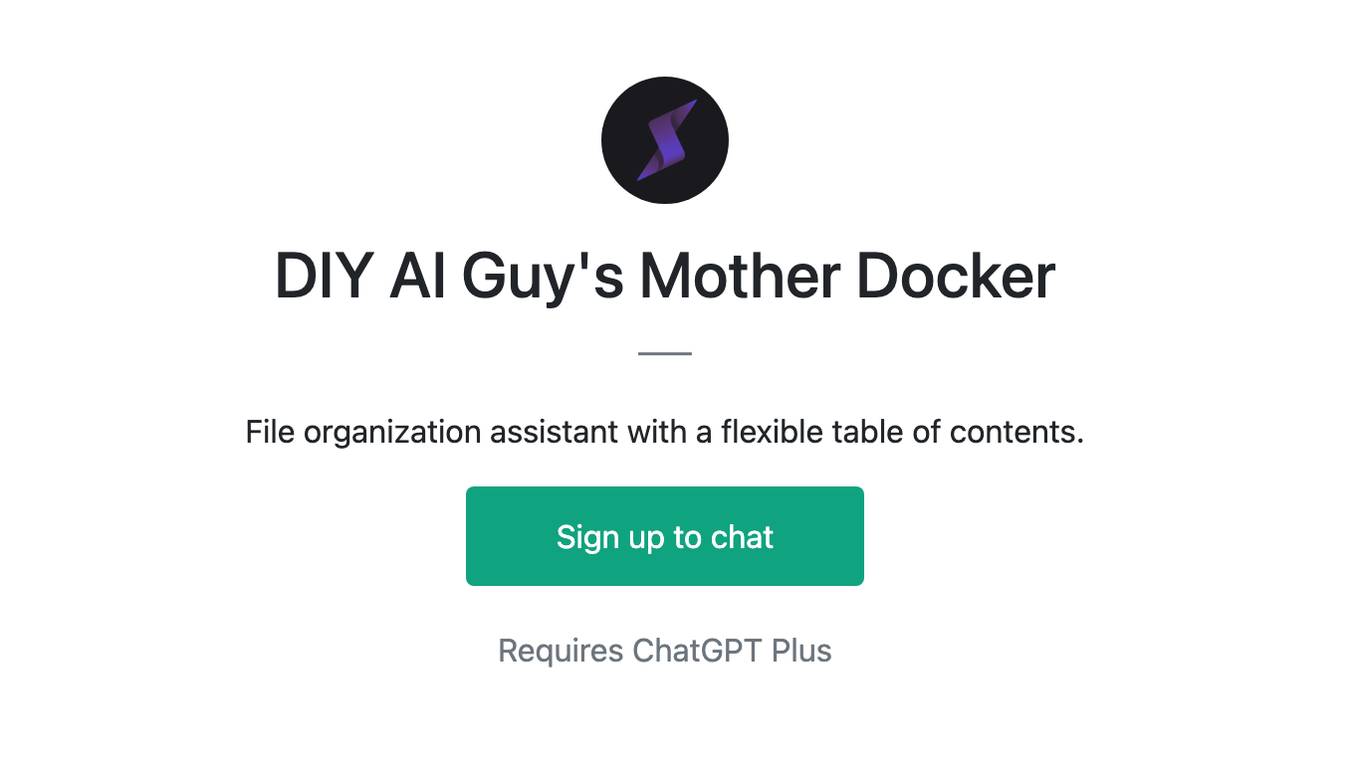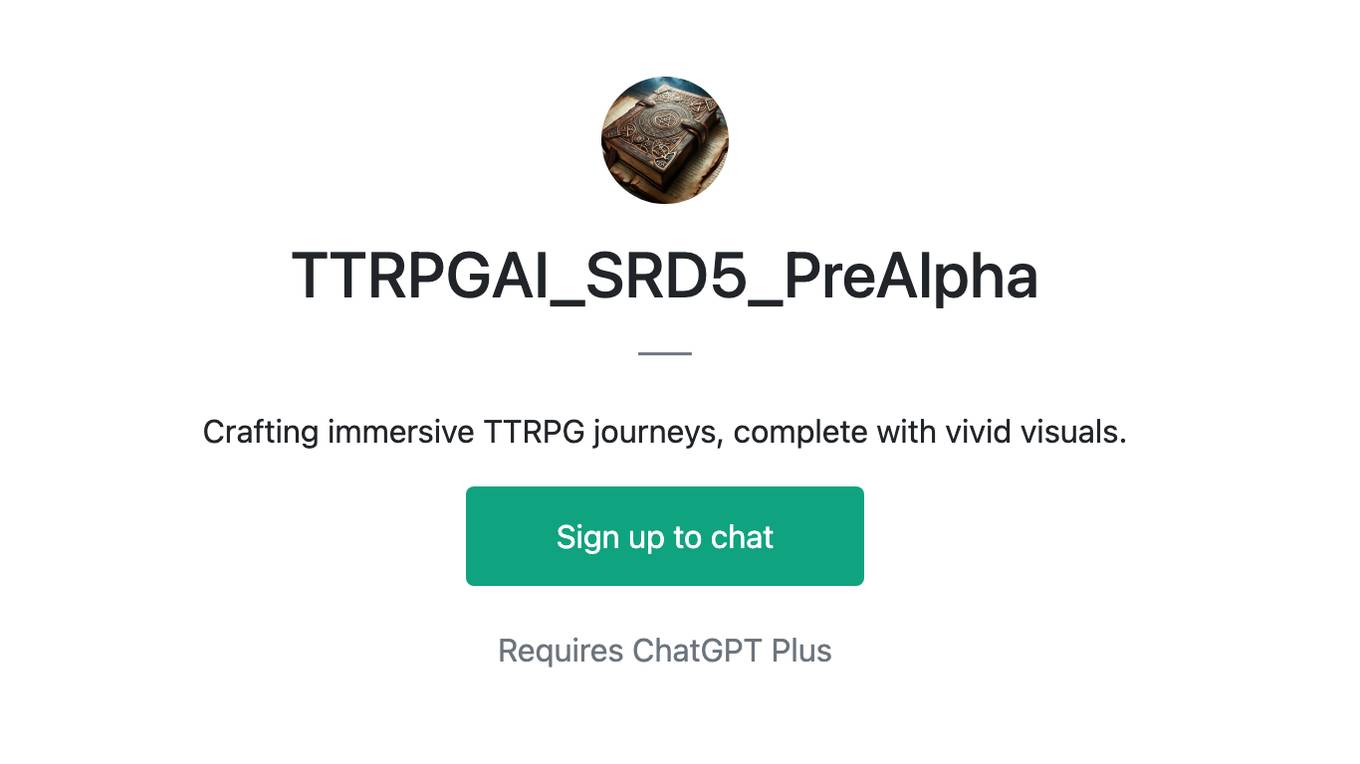Best AI tools for< Find Table >
20 - AI tool Sites

Archive
Archive is an AI-first influencer marketing platform that drives results by automating the tracking, management, and repurposing of user-generated content (UGC). It offers features such as Campaign Dashboards, Social Listening, AI-powered Creator Search, Competitor Insights, Shoppable UGC Feeds, and detailed Reports. Archive helps brands streamline influencer marketing, improve conversion rates, and increase revenue through its innovative AI technology.
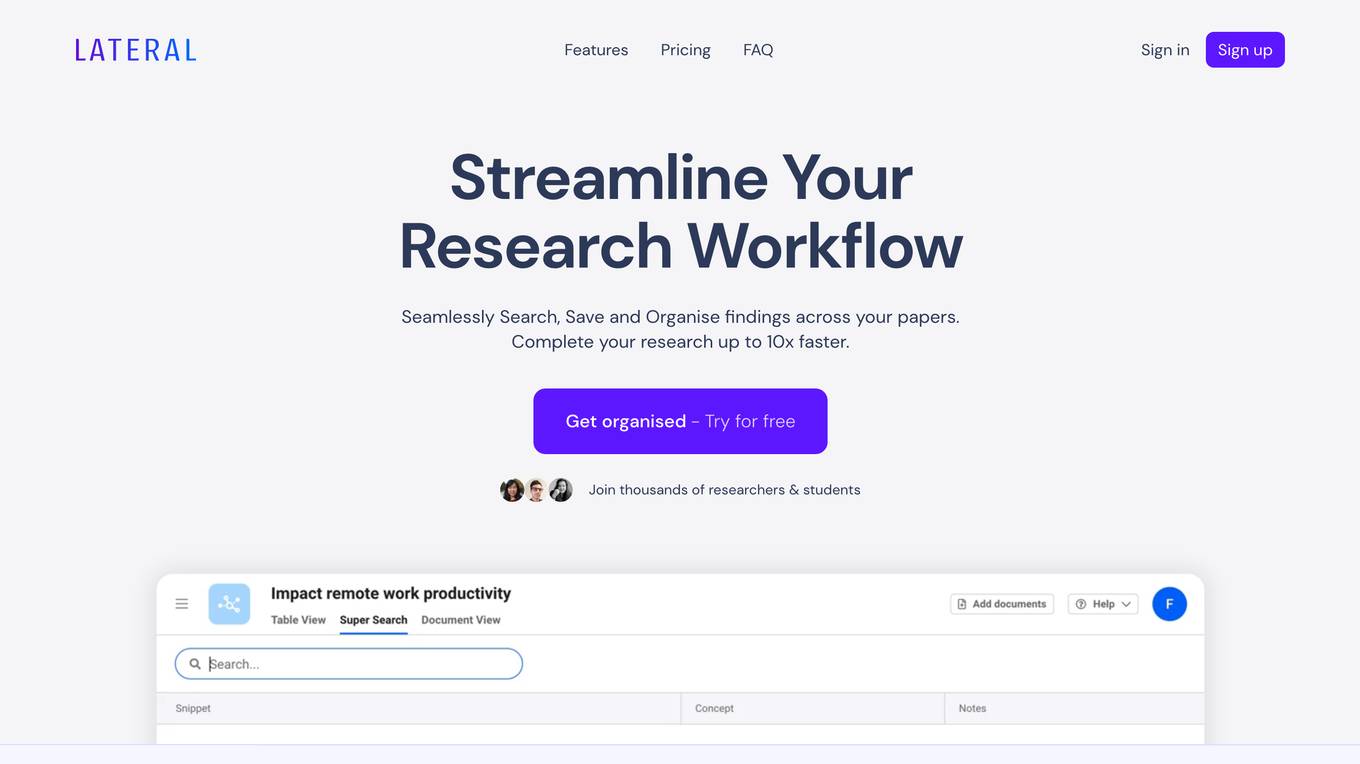
Lateral
Lateral is an AI-powered research tool that helps academics and students streamline their workflow by seamlessly searching, saving, and organizing findings across their papers. It uses AI to generate an auto-generated table, name concepts, and provide super search capabilities, making it easy to find relevant information quickly. Lateral also allows users to collaborate and share their work, making it a valuable tool for researchers working on collaborative projects.
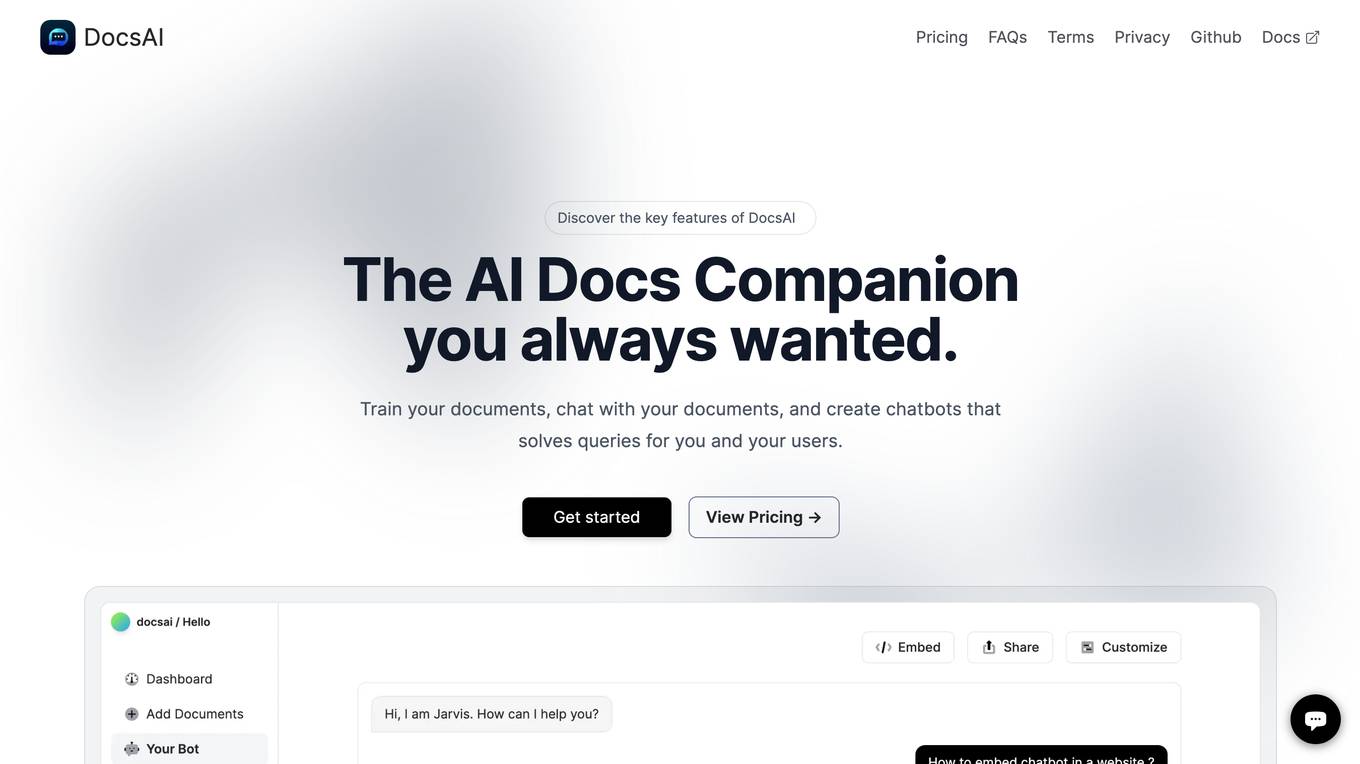
DocsAI
DocsAI is an AI-powered document companion that helps you organize, search, and chat with your documents. It integrates with various sources, including websites, text files, PDFs, Docx, Notion, and Confluence. You can customize the companion's appearance to match your brand and suggest better answers to improve its accuracy. DocsAI also offers a chat widget that can be embedded on any website, allowing you to chat with your documents and get summaries, insights, and leads. It is mobile and tablet-friendly, and you can export chats and analyze data to identify trends and improve customer satisfaction. DocsAI is open source and offers custom prompts and multi-language support.
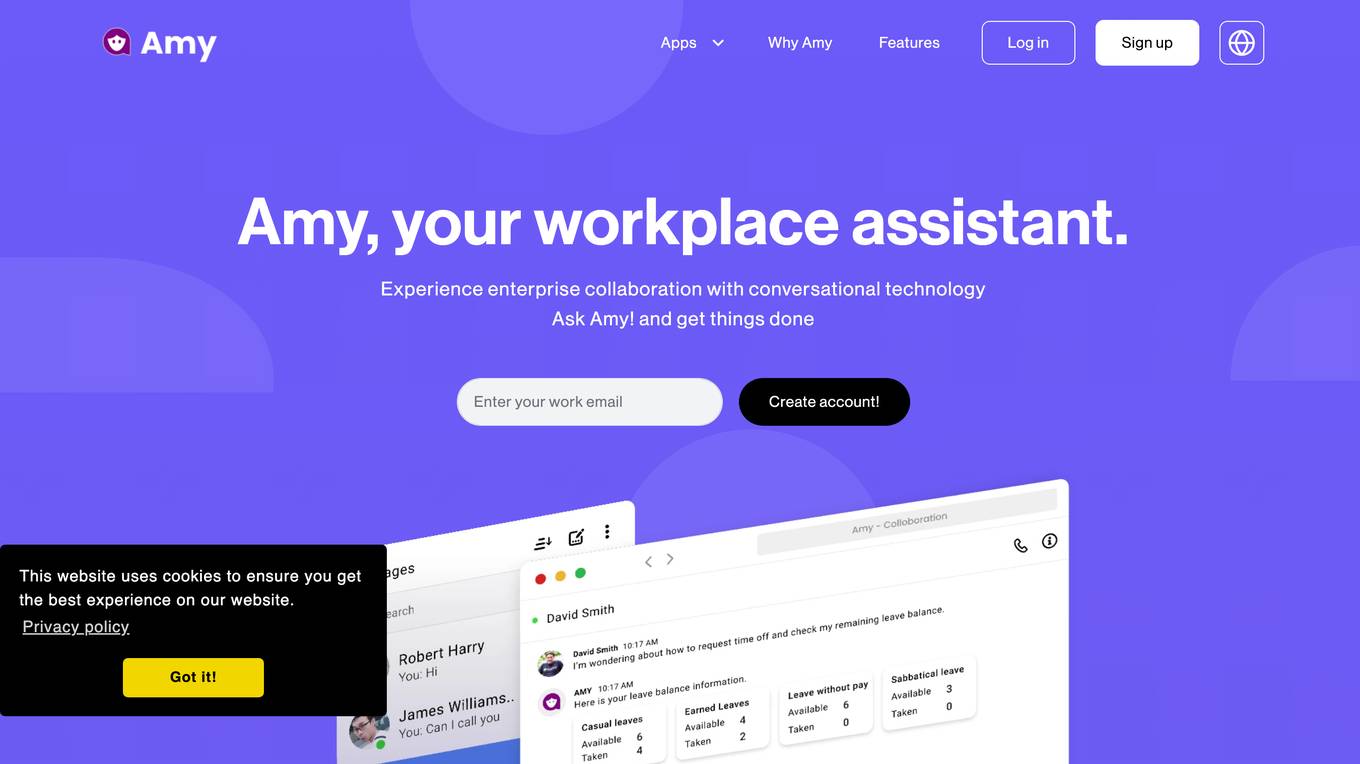
Amy
Amy is a workplace assistant that uses conversational technology to help users with a variety of tasks, including communication, HR, web management, and recruitment. Amy can be used to send messages, schedule meetings, manage attendance and leaves, update websites, post blogs and jobs, and find talent. Amy is designed to be easy to use and can be accessed through a variety of devices, including smartphones, tablets, and computers.

ProRank
ProRank is an AI-powered platform that empowers organizations in the healthcare industry to find and hire top talent with precision and efficiency. The platform combines advanced technology with user-friendly features to streamline the recruitment process, ensuring efficient and effective candidate connections. ProRank offers a curated talent database, AI talent CRM, talent analytics, and key integrations with various ATS vendors, enabling organizations to make data-driven decisions and reduce unconscious bias in recruitment.
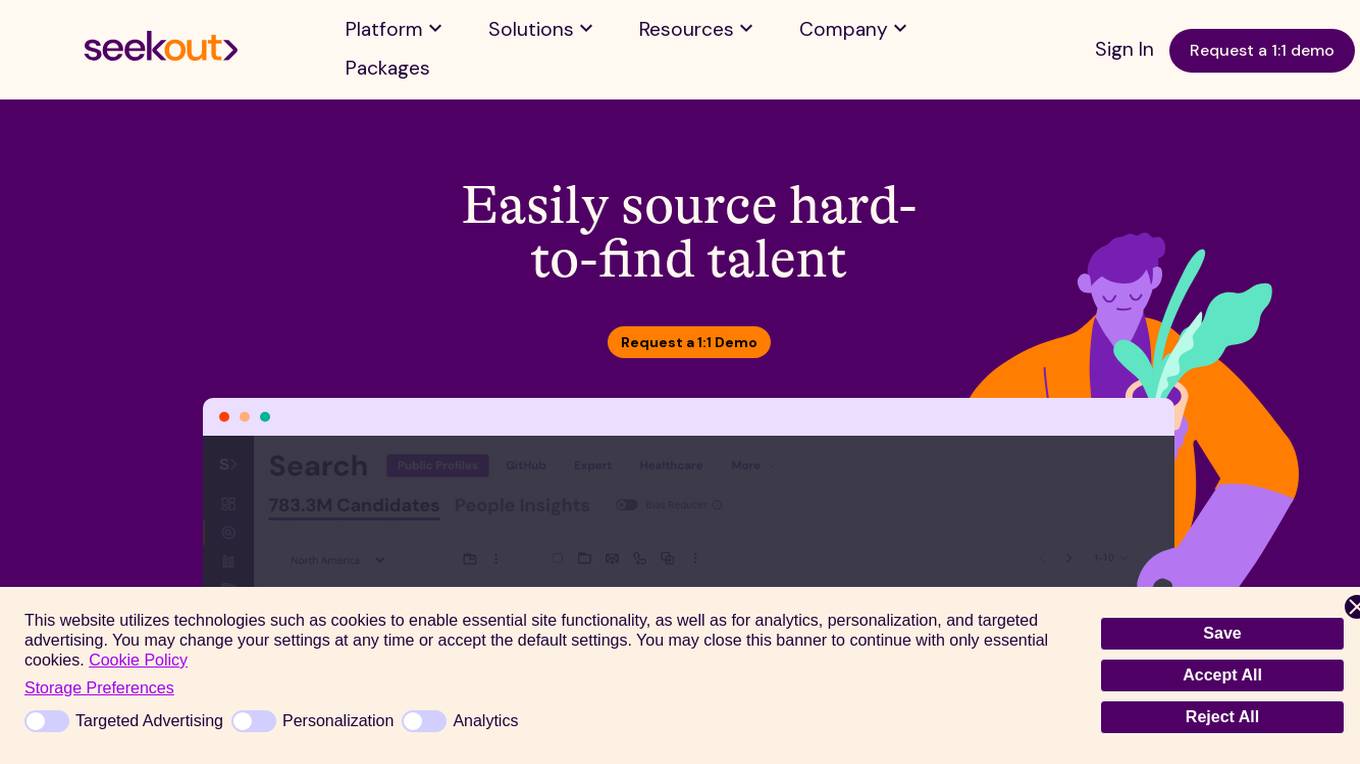
SeekOut
SeekOut is an AI-powered platform designed to help organizations find the right candidates for open roles, develop their teams, and improve company culture. It offers features such as external talent sourcing, applicant review, pipeline insights, internal talent development, career compass, and talent intelligence. SeekOut is trusted by over 1,000 leading brands to recruit hard-to-find, diverse talent and manage talent acquisition and management in one platform. The platform integrates external data with HR systems to automatically build comprehensive profiles and provides data-driven insights to understand talent needs and prepare for the future.
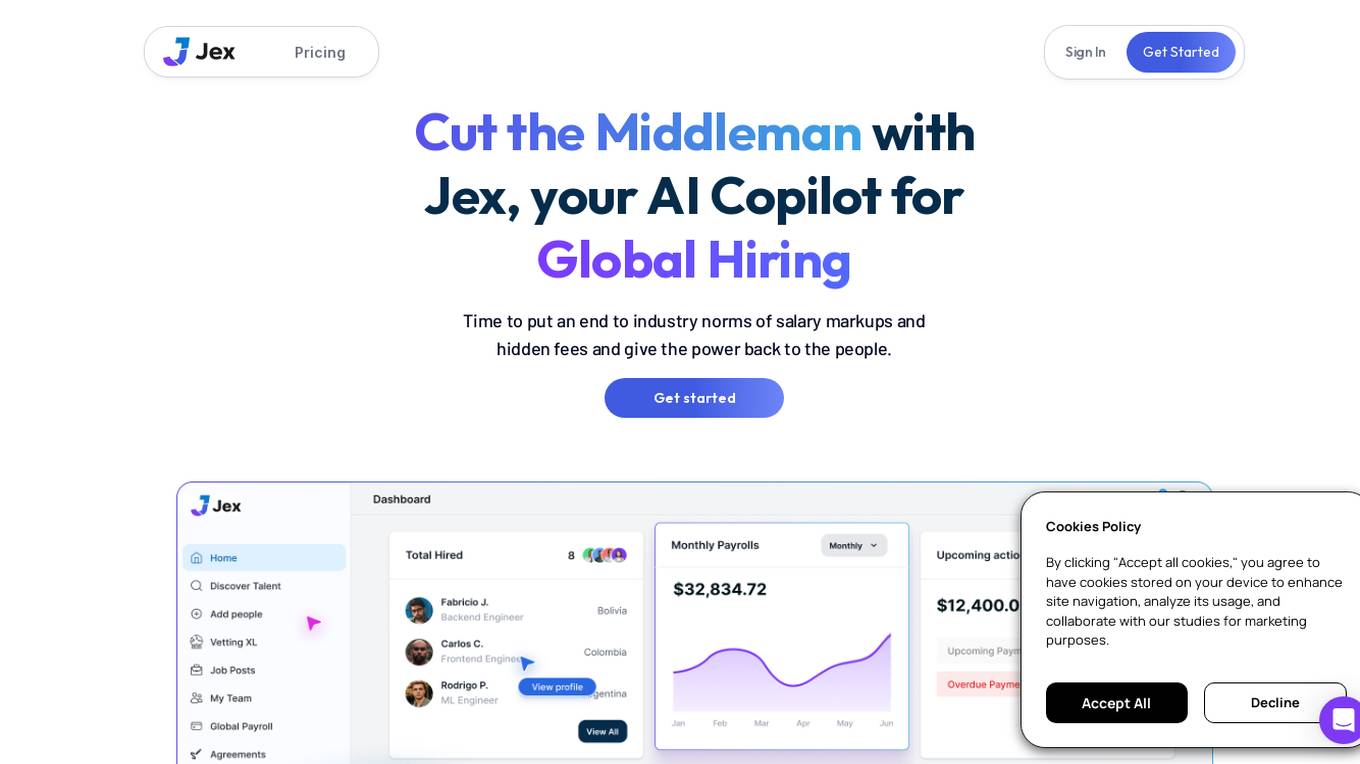
Jex
Jex is an AI-driven platform that revolutionizes global hiring by cutting out middlemen and providing transparency and efficiency in the recruitment process. It empowers both talent and companies to connect directly, eliminating salary markups and hidden fees. Jex offers dynamic candidate profiles, AI-driven insights, compliance management, and payroll services, streamlining the hiring workflow and saving time and money for users.
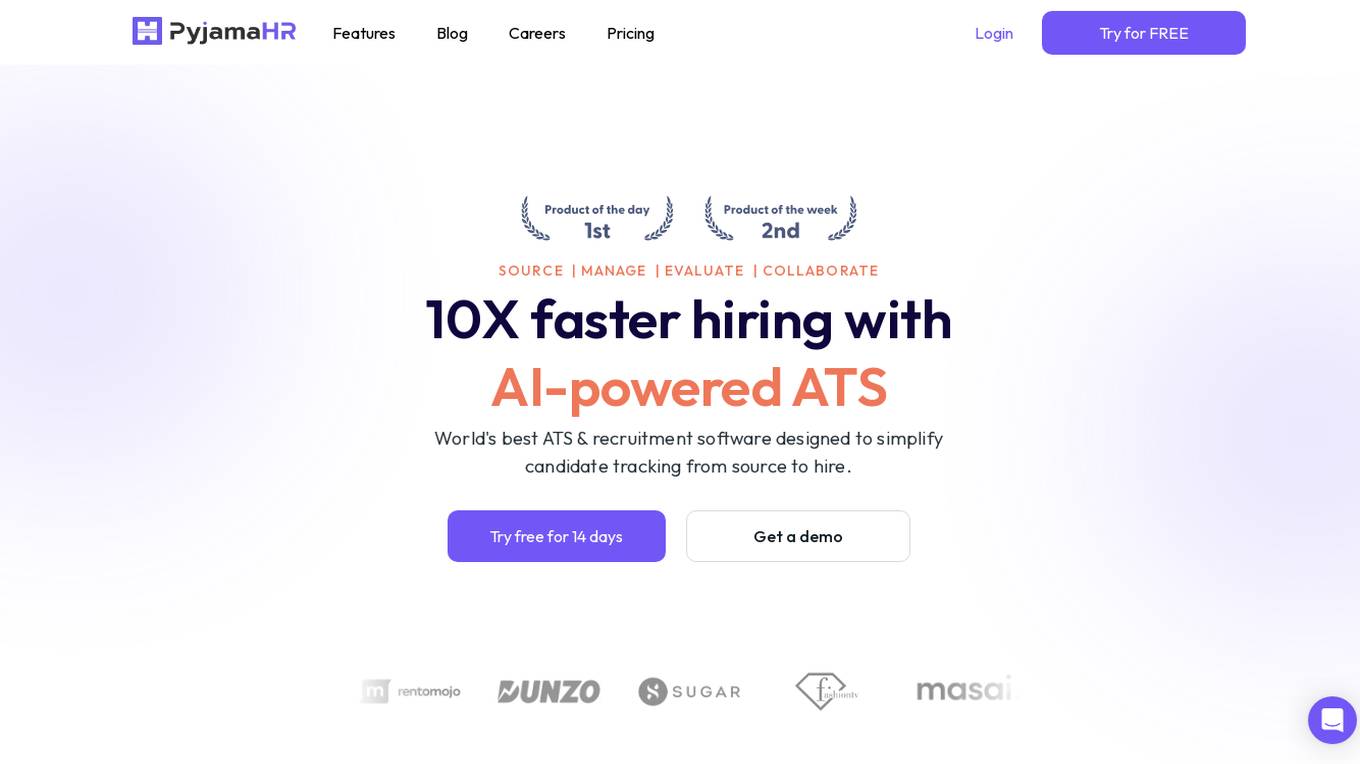
PyjamaHR
PyjamaHR is a leading AI-powered Applicant Tracking System (ATS) and recruitment software designed to streamline the hiring process for businesses of all sizes. It offers advanced features such as source management, candidate evaluation, collaboration tools, and AI-powered candidate tests to enhance the efficiency and effectiveness of the recruitment process. With a user-friendly interface and robust security measures, PyjamaHR is a trusted solution for managing talent acquisition and improving hiring outcomes.
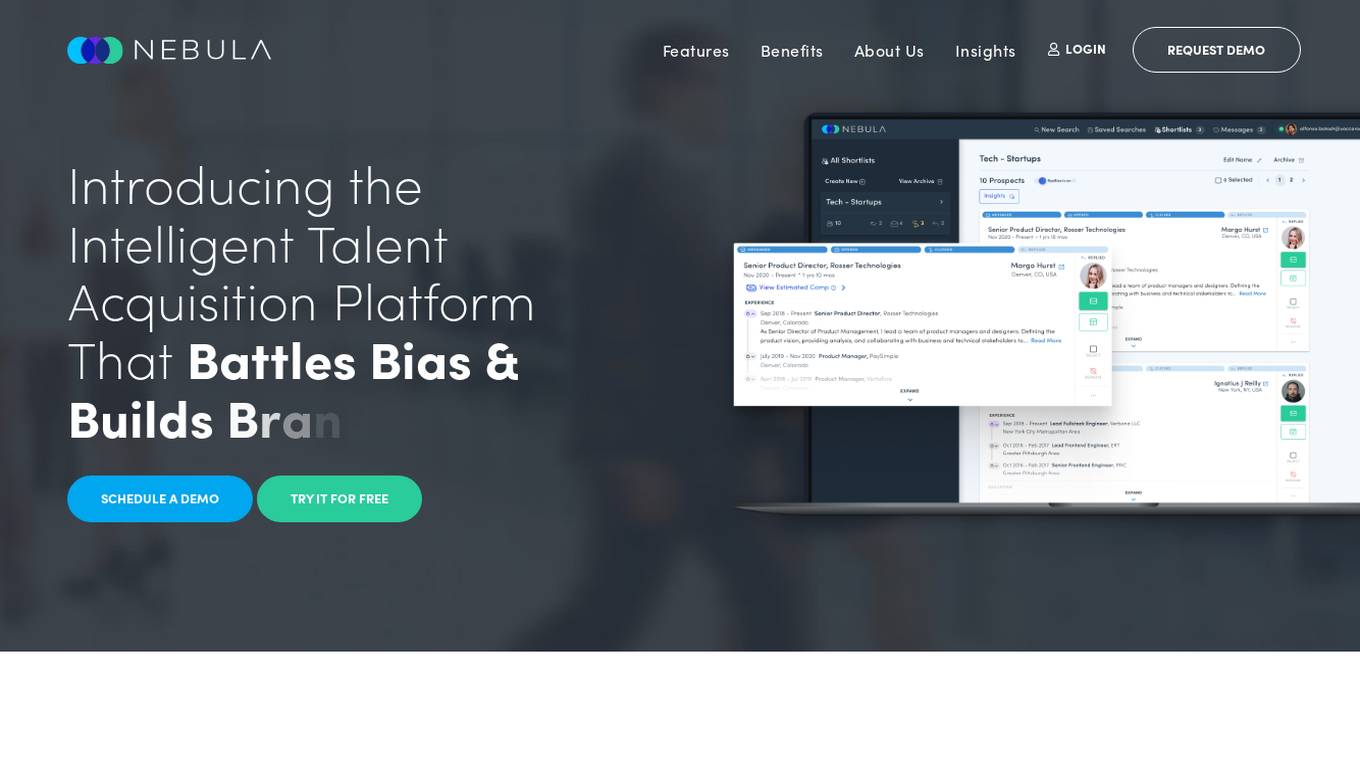
Nebula
Nebula is an Intelligent Talent Acquisition Platform that reimagines recruitment by providing access to a world-class talent pool, powerful matching engine, talent engagement tools, and actionable insights. It leverages AI algorithms to analyze profiles, eliminate bias, and optimize talent planning and acquisition strategies. Nebula aims to help organizations find better talent faster while promoting diversity, equity, and inclusion in the hiring process.
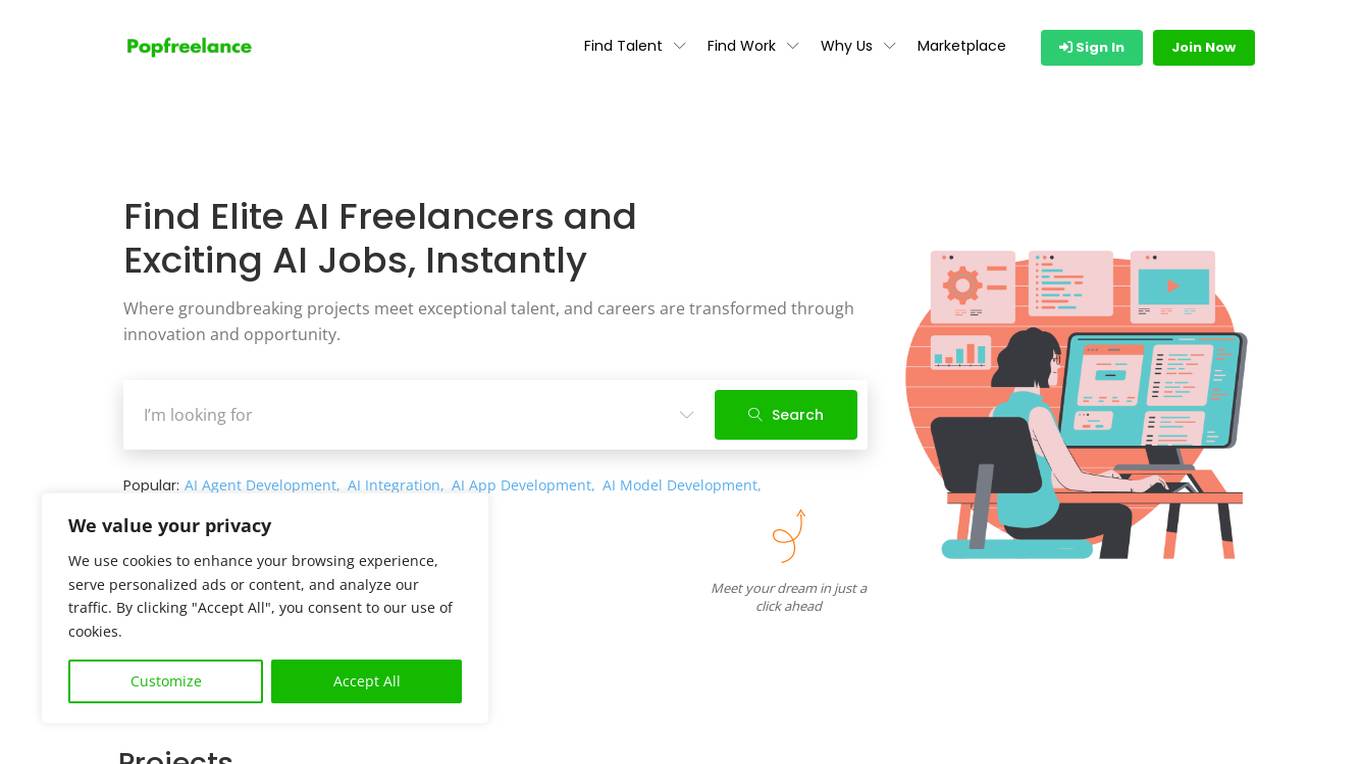
Popfreelance
Popfreelance is an AI freelance marketplace that connects employers with elite AI freelancers and offers exciting AI job opportunities. The platform provides cutting-edge tools for AI freelancers, a marketplace for AI digital products, and a revolutionary cryptocurrency payment system. Popfreelance prioritizes quality, affordability, and data protection, ensuring a seamless and secure experience for users.

Juicebox
Juicebox is an AI Recruiting Platform designed to revolutionize the recruitment process. It leverages AI technology to help companies find the right talent efficiently and effectively. With features like AI Talent Search, AI Agents, and real-time insights, Juicebox streamlines the hiring process and enhances team collaboration. The platform is built for recruiters who demand speed and precision in their talent acquisition strategies.

Savvy
Savvy is an AI recruitment platform that connects job seekers with companies and recruiters, offering an Intelligent Matching System to find top talent efficiently. It automates tasks like resume screening, scheduling interviews, and eliminates subconscious bias in the hiring process. Savvy aims to streamline the recruitment process, saving time and resources for both job seekers and recruiters.
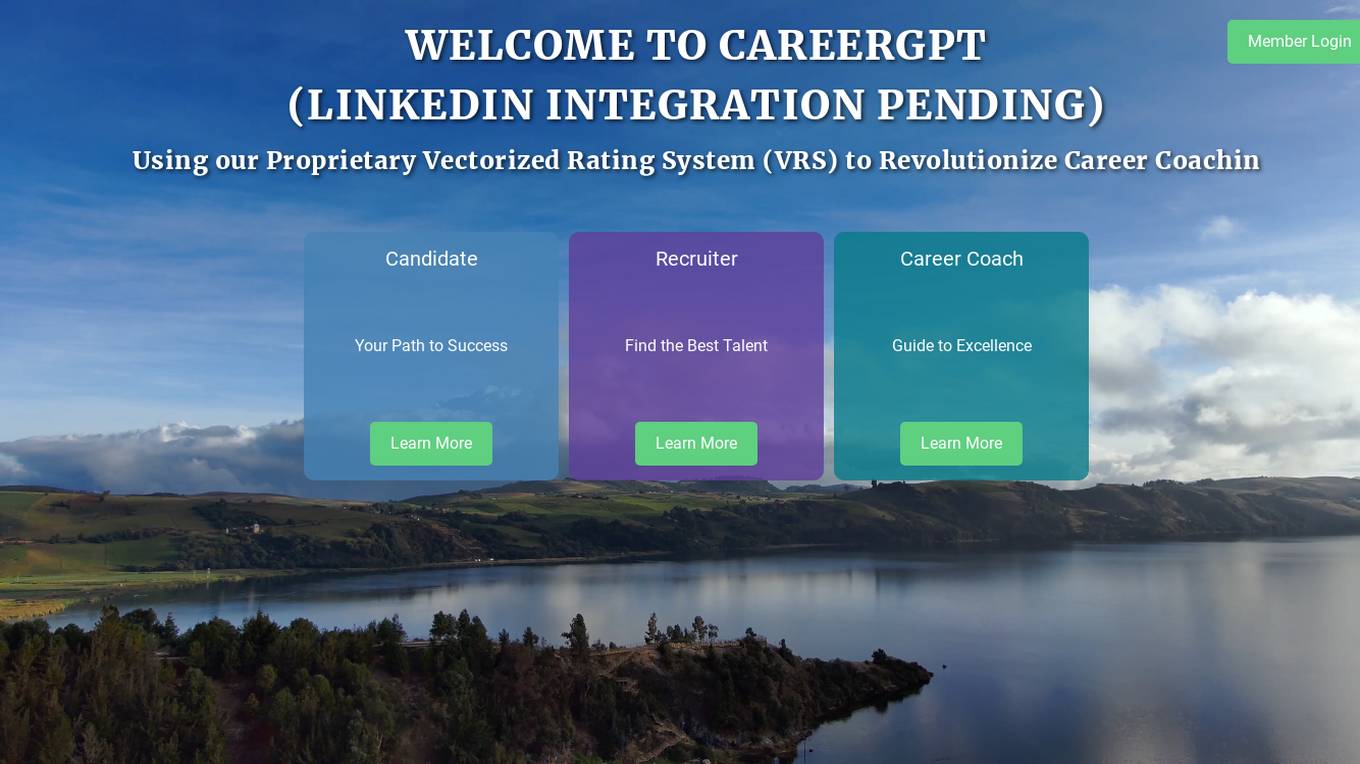
CareerGPT
CareerGPT is an AI tool designed to revolutionize the candidate selection process by utilizing its proprietary Vectorized Rating System (VRS). The platform aims to assist recruiters in finding the best talent, guide career coaches towards excellence, and help members navigate their path to success. With a focus on leveraging AI technology for optimizing career-related decisions, CareerGPT offers a user-friendly interface and advanced algorithms to streamline the recruitment and coaching processes.
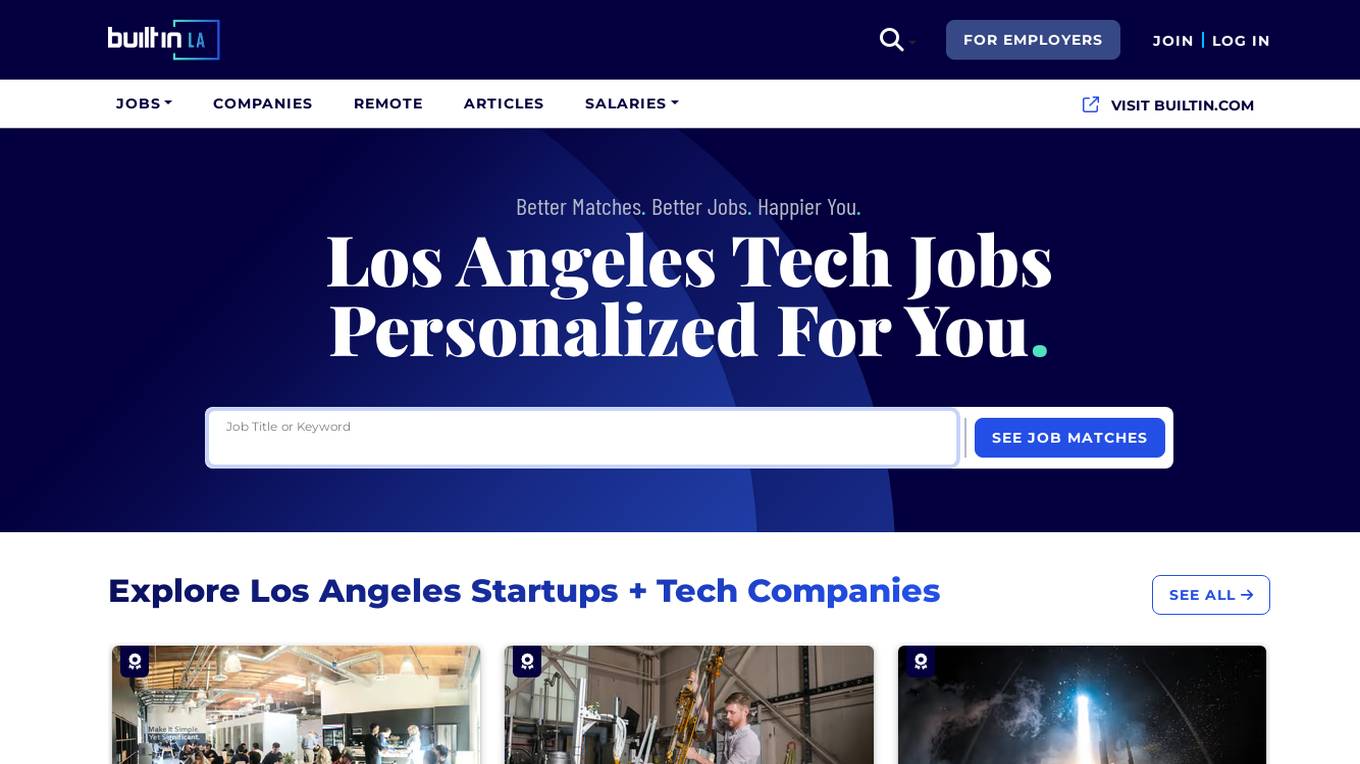
Built In LA
Built In LA is an online community for startups and tech companies in Los Angeles. It provides a platform for job seekers to find tech jobs, tech companies to find talent, and tech enthusiasts to stay up-to-date on the latest news and events in the LA tech scene.
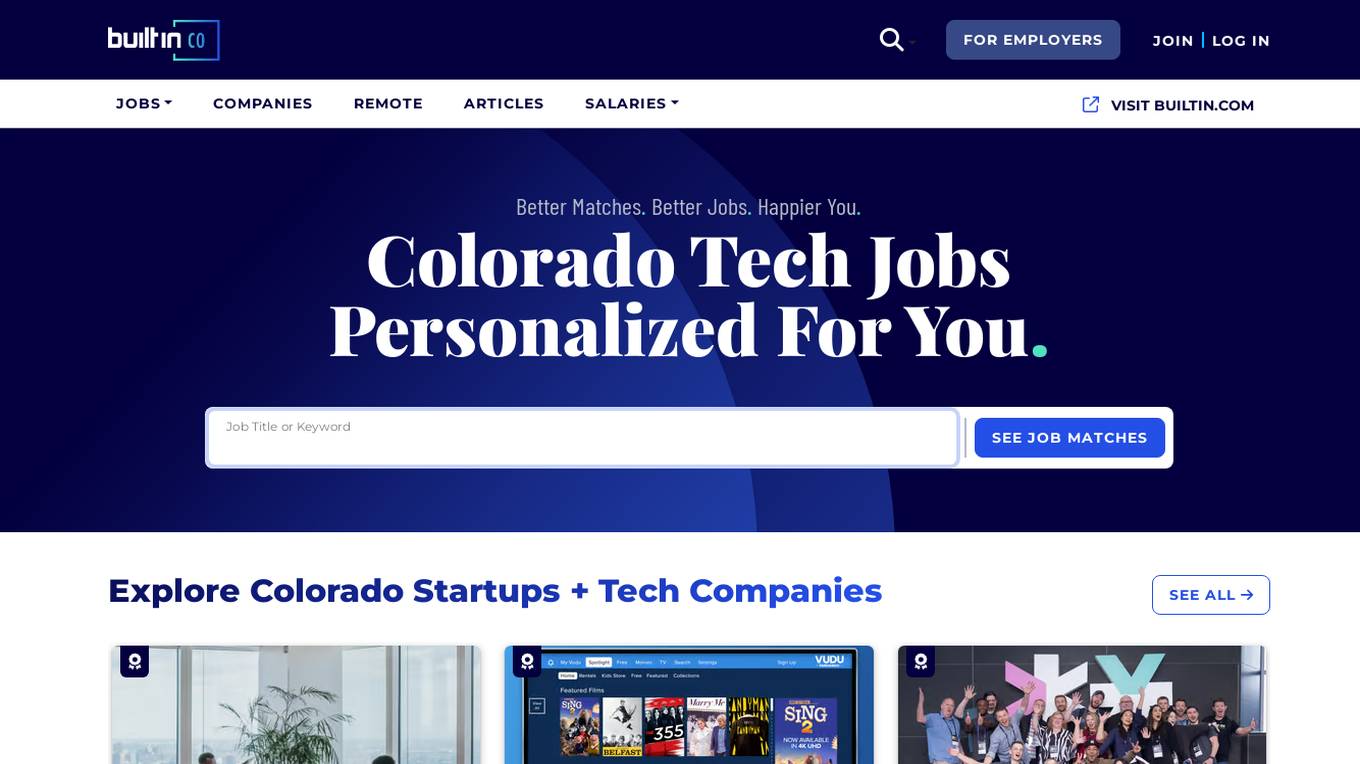
Built In Colorado
Built In Colorado is an online community for startups and tech companies in Colorado. It provides a platform for job seekers to find tech jobs, tech companies to find talent, and tech enthusiasts to stay up-to-date on the latest news and events in the Colorado tech scene.
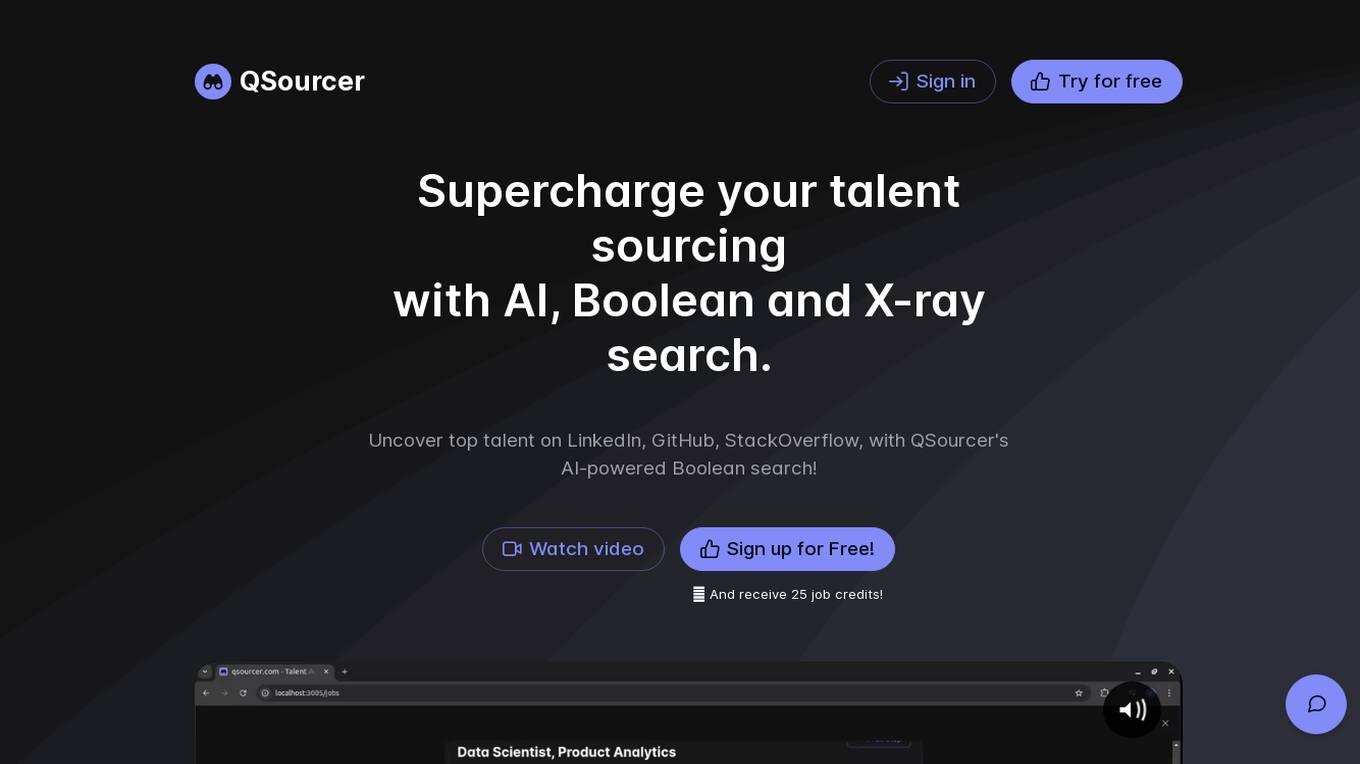
QSourcer
QSourcer is an AI-powered talent acquisition tool that leverages Boolean and X-ray search techniques to supercharge talent sourcing. It helps users uncover top talent on platforms like LinkedIn, GitHub, and StackOverflow by simplifying the creation of complex Boolean search queries and providing industry-specific synonyms. With features like generating keywords with AI, multi-language support, and user-friendly interface, QSourcer aims to make talent sourcing efficient, fun, and much easier.
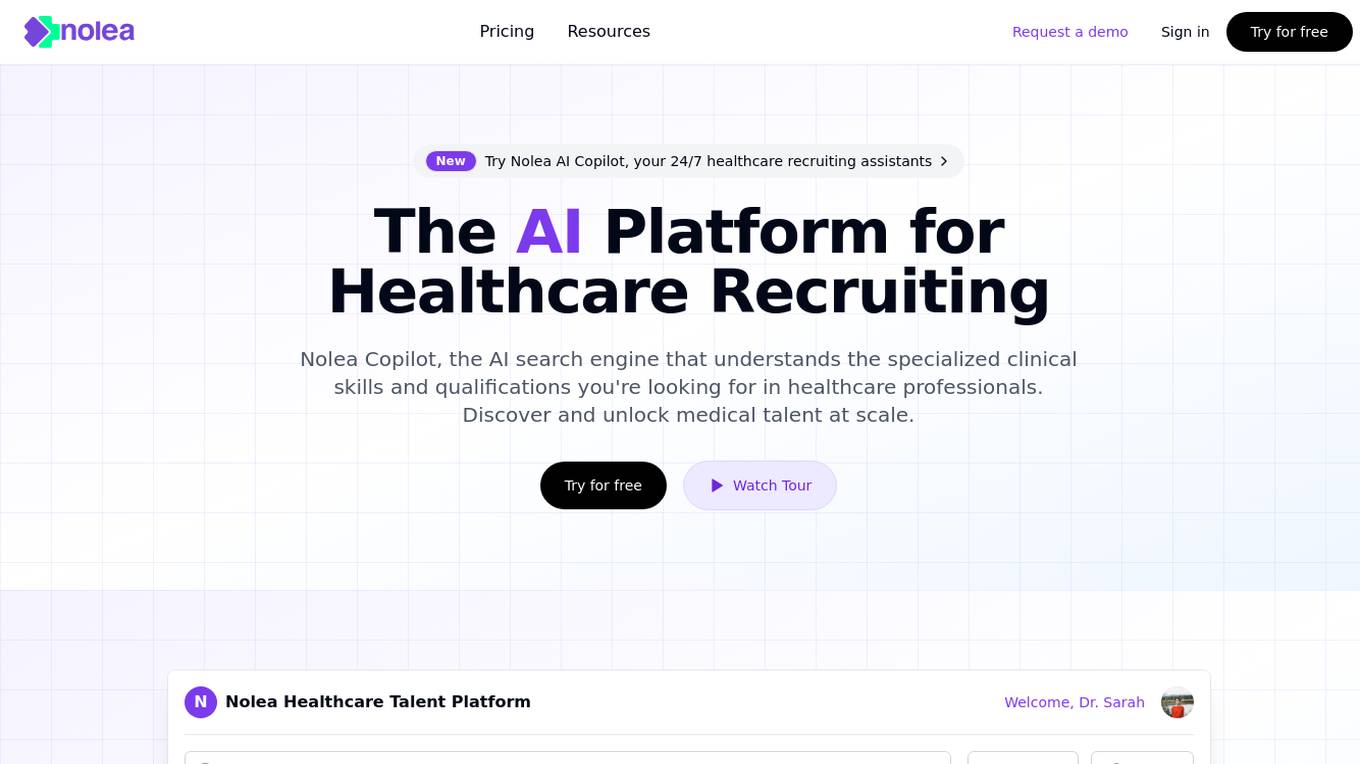
Nolea
Nolea is an AI-powered healthcare talent discovery platform that revolutionizes healthcare recruiting by leveraging artificial intelligence to find, engage, and hire the best clinical talent faster than ever before. The platform offers features such as AI-powered clinical search, healthcare-specific outreach, clinical talent insights, AI chat assistant, profile evaluation, email outreach, and more. Nolea helps healthcare organizations make data-driven decisions, engage with candidates 24/7, and transform their recruiting process with personalized and efficient workflows.
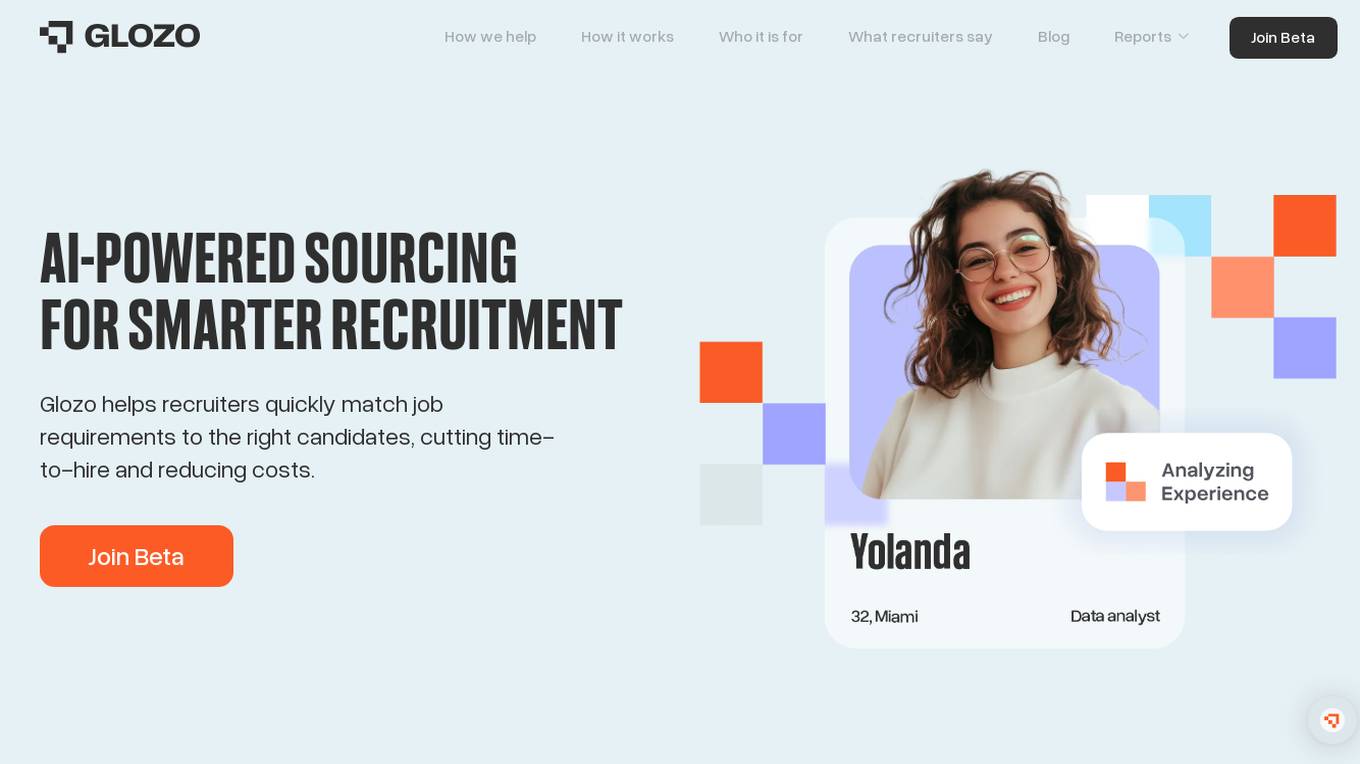
Glozo
Glozo is an AI-powered sourcing platform designed to streamline recruitment processes by matching job requirements to suitable candidates efficiently. The platform utilizes AI to enhance sourcing accuracy, reduce time-to-hire, and minimize costs for recruiters. Glozo offers features such as AI-powered candidate search, automated screening, and access to a vast talent database from various sources. The platform caters to recruiters in the tech industry, finance sector, and other fields, helping them build stronger talent pipelines and make informed hiring decisions.

Seekout
Seekout is an AI-powered recruiting tool that helps companies discover and reach out to potential candidates more efficiently. By leveraging advanced algorithms and data analytics, Seekout streamlines the recruitment process, saving time and resources for hiring teams. The platform offers comprehensive candidate search capabilities, enabling recruiters to find top talent across various sources and platforms. With its user-friendly interface and powerful features, Seekout is a valuable asset for modern recruitment strategies.
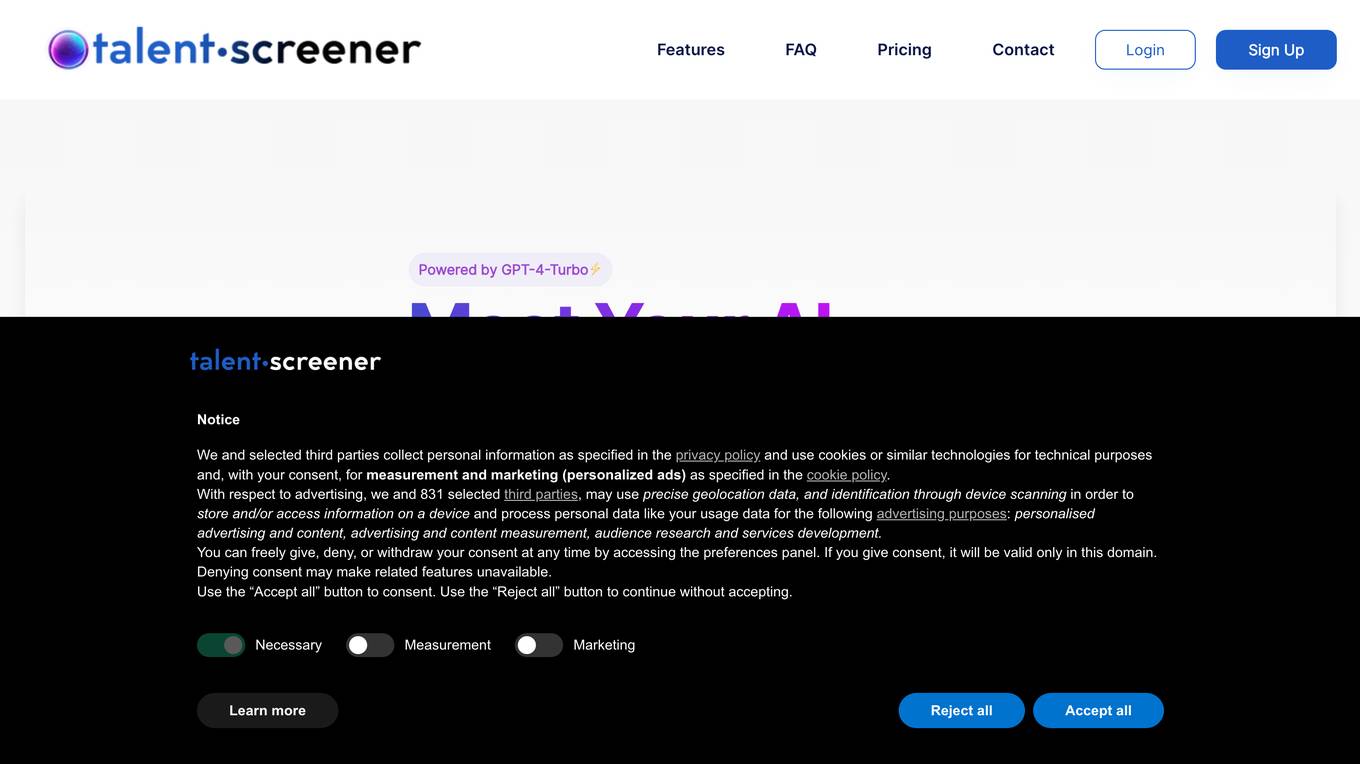
Talentscreener
Talentscreener is an AI-powered talent assessment platform that helps businesses find the best candidates for their open positions. The platform uses a variety of AI algorithms to assess candidates' skills, experience, and personality, and then provides businesses with a ranked list of the most qualified candidates. Talentscreener also offers a variety of other features, such as job posting, candidate management, and reporting.
0 - Open Source AI Tools
20 - OpenAI Gpts
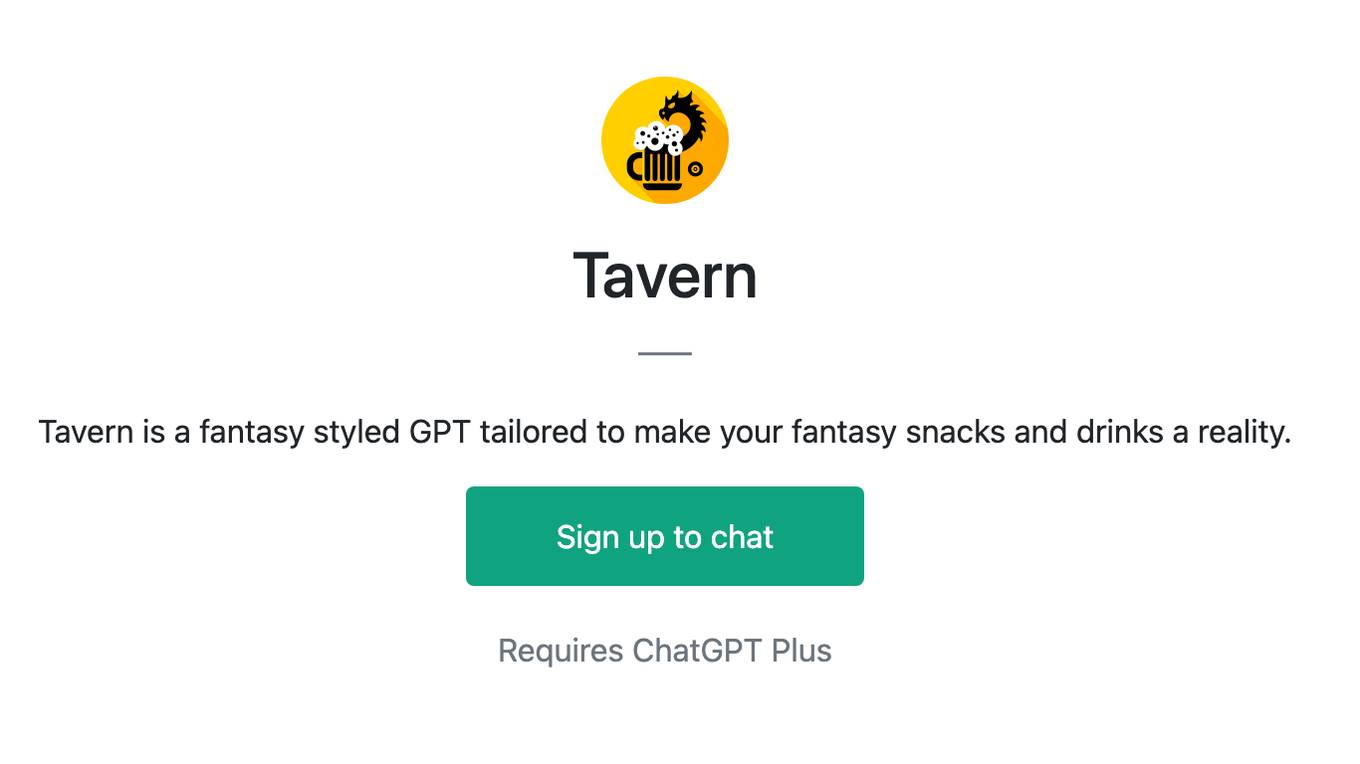
Tavern
Tavern is a fantasy styled GPT tailored to make your fantasy snacks and drinks a reality.

Classical Music Audition Finder
I find classical music career opportunities in table format.

Table Games for Any Company
Detailed table game rules expert, always offering multiple options.
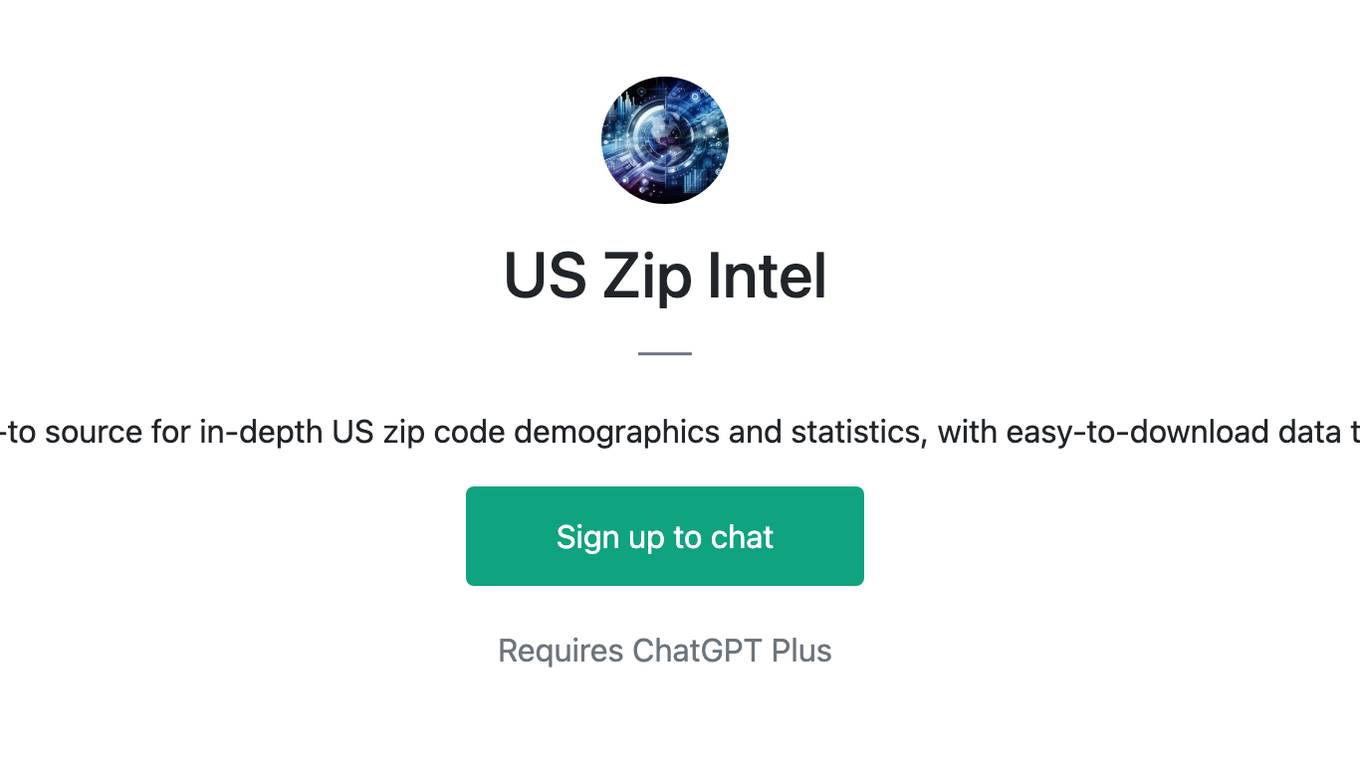
US Zip Intel
Your go-to source for in-depth US zip code demographics and statistics, with easy-to-download data tables.
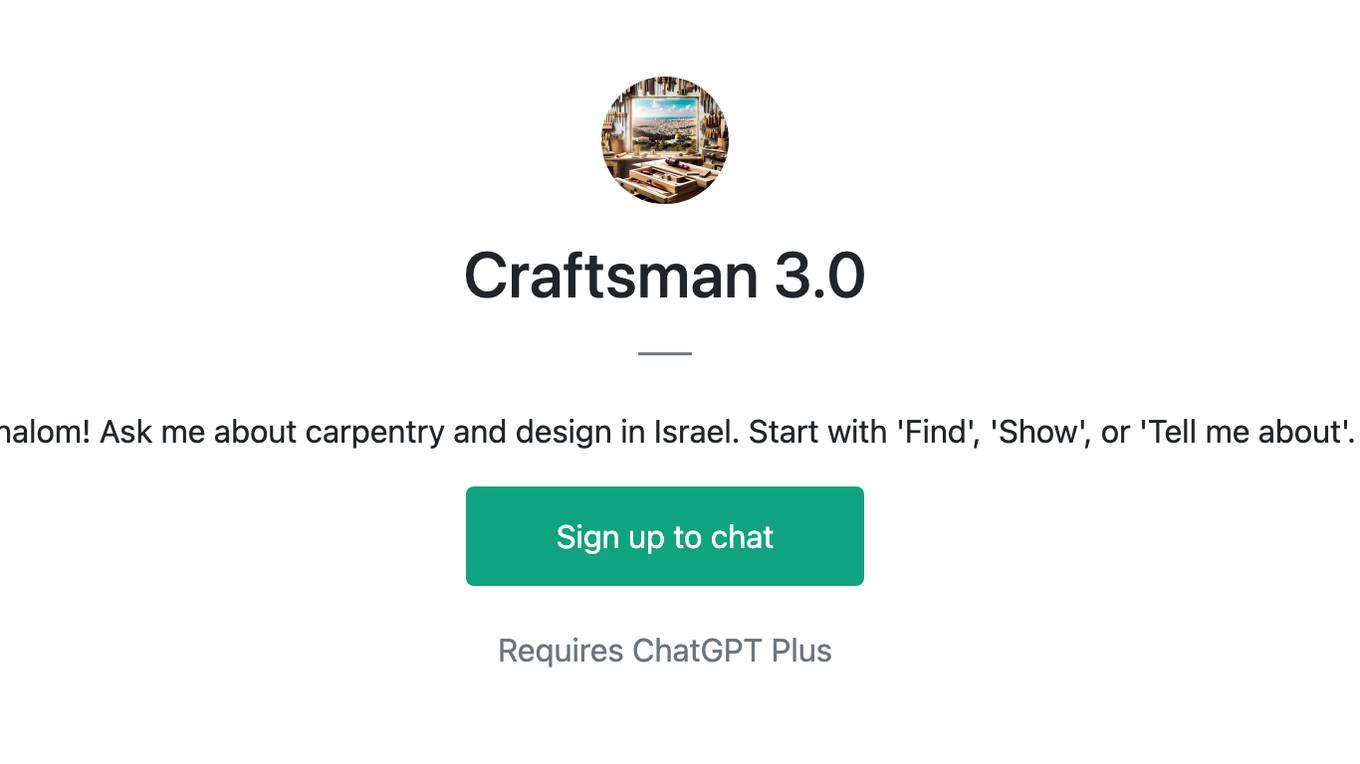
Craftsman 3.0
Shalom! Ask me about carpentry and design in Israel. Start with 'Find', 'Show', or 'Tell me about'.

Fantasy Name Generator Bot
Generates random fantasy names for tabletop RPG games like Dungeons and Dragons

Holiday Planner
A holiday planning assistant offering recipes, table settings, and festive ideas.

Talent Acquisition Advisor
Supports organization growth through strategic talent acquisition.
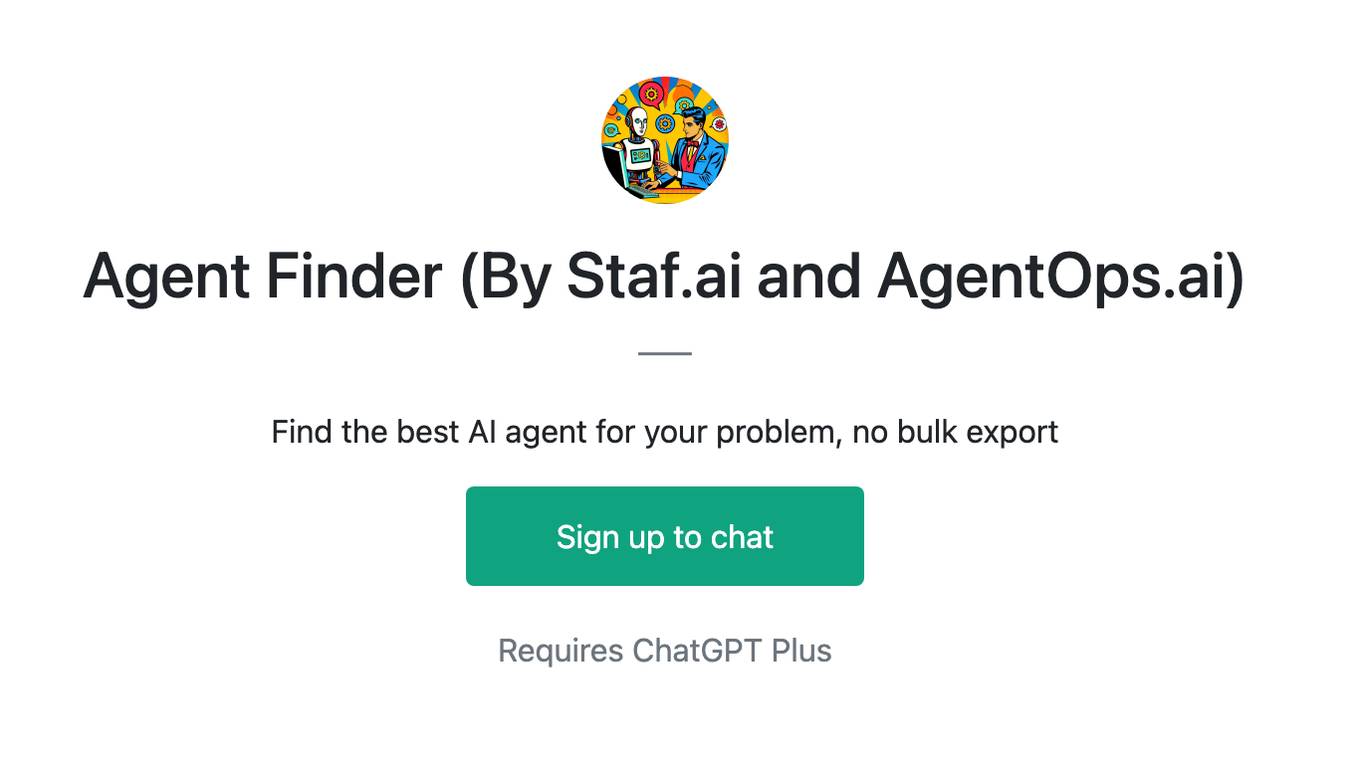
Agent Finder (By Staf.ai and AgentOps.ai)
Find the best AI agent for your problem, no bulk export

